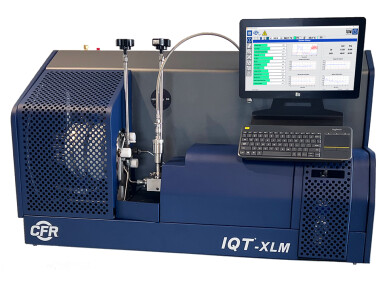Analytical Instrumentation
Will Petroleum Production Continue to Increase?
Jul 04 2014
According to recent research, petroleum production will not only increase but surpass expectations. In 2013, U.S oil production was vastly underestimated. At present around 1.8 million barrels of oil per day are consumed in the U.S. Additionally, consumption has increased about 1.4 percent around the world so it stands to reason that demand dictates the supply and more oil is constantly being produced.
As consumers buy more sports utility vehicles and other oil-guzzling niceties, the real question on expert’s lips is: will the oil industry be able to keep up? The Cutting Edge Advances in Worldwide Biodiesel Testing Specifications and Standards provides further insight into the great oil debate.
Will We Keep Up?
Thanks to alternative, environmentally-friendly fuel options, it would seem that yes, supply will keep up with demand. While countries like Germany and China are increasing their demand for oil, many wealthier states in the OECD are finding ways to lower their need. It’s estimated that these countries will consume less than half of the world’s production by the end of 2014. This is the first time this will have ever happened. In addition to the decrease in demand from major sources, the U.S rate of production saw its biggest increase in 2013 since 1940. A similar increase was noted in 1951 but the 2013 boost managed to top it.
Oil production in the U.S has been climbing steadily for five consecutive years, something that has not been achieved in the past twenty. The forecast for 2014 is that production will increase by approximately 782,000 barrels (in addition to the average 8.3 million currently produced). If, as in previous years, this forecast is met or exceeded, production will be 46 percent higher than before 2011. This is a significant triumph, particularly as it has been nine decades since an increase matched that percentage.
The price of petroleum is predicted to fall over the next few years. This is due to a combination of increased productivity and the world becoming more environmentally conscious. This may be bad news for anyone involved in the production of petroleum, but it is excellent for consumers who have been crippled by recent price surges.
The production and consumption of petroleum is like any other commodity in that it depends on a precarious balance between supply and demand. While demand may fluctuate in different countries and at different times, new technologies have allowed production to continue and even increase. All this means that the risk of petroleum becoming limited any time soon is highly unlikely.
Digital Edition
PIN 25.5 Oct/Nov 2024
November 2024
Analytical Instrumentation - Picturing Viscosity – How Can a Viscometer or a Rheometer Benefit You? - Sustainable Grease Formulations: Evaluating Key Performance Parameters and Testing Method...
View all digital editions
Events
Dec 03 2024 Dusseldorf, Germany
Dec 08 2024 Anaheim, CA, USA
Turkey & Black Sea Oil and Gas
Dec 11 2024 Istanbul, Turkey
Dec 19 2024 Aurangabad, India
Jan 20 2025 San Diego, CA, USA



















